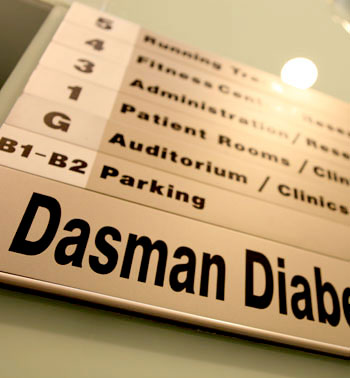Diabetes in Kuwait: Special Report on Alarming Rates of Diabetes
Fighting Diabetes is one of the biggest challenges the Gulf healthcare sector has to deal with. The Dasman Diabetes Institute aims to prevent and to mitigate the impact of diabetes in Kuwait.
Fighting Diabetes is one of the biggest challenges the Gulf healthcare sector has to deal with. The Dasman Diabetes Institute aims to prevent and to mitigate the impact of diabetes in Kuwait.
“
The lifestyle has changed.
The children are always out. Ba
sically, fo
od is becoming more available outside the house. There are a lot of places that offer wonderful food in large portions and the calories are not mentioned and education is not there.”
Dr. Kazem Behbehani, who is Director General of the Dasman Diabetes Institute, explains the clinic’s raison d’être: “The Dasman Diabetes Institute was built in relation to a survey taken about 8 years ago where 150 physicians identified that the future need of Kuwait is to concentrate on diabetes. That is basically the beginning of it. It was built at the time of His Highness the late Amir, and it was opened on June 6, 2006 by His Present Highness of Kuwait.”
“A lot of prevention is done. But the chronic diseases are the diseases that are going to be found more and more in the country, including diabetes,” said Dr. Behbehani.
“We have a 24-hour call center that people can call to ask questions and receive answers for Type I Diabetes. We have a lot of clinics – about 30. They open at 8:30 a.m. and close at 9:00 p.m. with a short lunch break in between.”

On its website, the Institute defines its mission with the following words: “Our aim is to prevent, control, and mitigate the impact of diabetes and related conditions in Kuwait through effective programs of research, training, education, treatment, and health promotion and thereby improve quality of life in the population.”
The State of Kuwait has traditionally close relations with the United States of America. Unfortunately the northern Gulf state does not only import cars, clothes, and Coke from “God’s own country” but also imports manners that lead to health problems that can became almost epidemic.
“The lifestyle has changed. The children are always out. Basically, food is becoming more available outside the house. There are a lot of places that offer wonderful food in large portions and the calories are not mentioned and education is not there.”
Around half of the population is obese, although Dasman’s Director General Dr. Behbehani warns: “With both diabetes and obesity, you can lose 15 years of your life.” Over 250,000 people in Kuwait live with diabetes.
Due to the fast-food culture, Kuwait has one of the highest body-mass indexes in the world among men, and the oil-rich state even beats the U. S. in this regard.
The near-epidemic spread of diabetes in Kuwait has many reasons. Well-known fast-food chains welcome Kuwait travelers at the airport. There is a “restaurant” near the immigration section where most Western nationals can obtain an entry visa on arrival. But the basic reason seems to be lack of sports and increasing time spent at home at computers.
There is a “restaurant” near the immigration section where most Western nationals can obtain an entry visa on arrival. But the basic reason seems to be lack of sports and increasing time spent at home at computers.
“Unfortunately, we are number 3 according to the IDF (International Diabetes Foundation) which was announced in December 2011”, said Dr. Behbehani, whose institute works closely with universities in the U.K. and the U. S. “It is sad to hear this and I am very sad to have to mention it because it will have an effect that we haven’t seen yet since it’s in the younger generation as well as the old.”
The tragic aspect in all this is the fact that Kuwait does not have a lack of state of the art-healthcare. The opposite is the case. “We have a very unique example of the health system in the country because we have general hospitals and we have close to over 94 primary health care centers, which are divided between these hospitals,” Dr. Behbehani explained. He and his team do not see their roles as medical fire brigades. The Dasman Diabetes Institute also invests a lot in prevention, teaching people how to avoid obesity and diabetes. “It’s important to eat less food and better food. More vegetables than rice. More carbohydrates than others,” the team tells families, schools and companies.

“When I was doing the e-learning materials, we actually tested the materials we developed in a couple of countries in the region,” Dr. Behbehani recalled. “In children of less than 11 years of age, you can train them and teach them and they will change their patterns. Parents listen to their children.”
The government plans to increase the amount of hospital beds in general by 3,565 or 60%. Hopefully, as many patients as possible can leave the hospital healthy… and without being diagnosed as having diabetes.